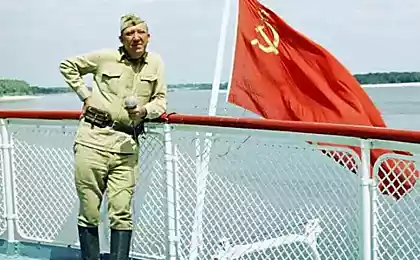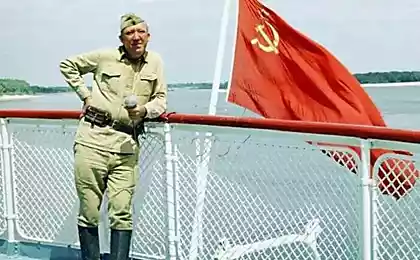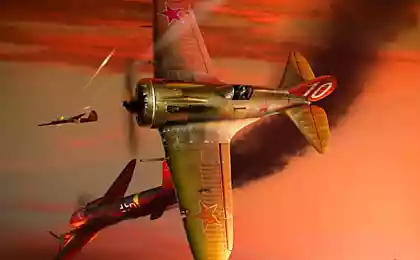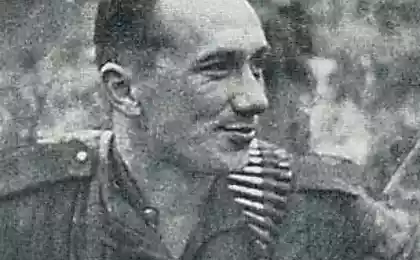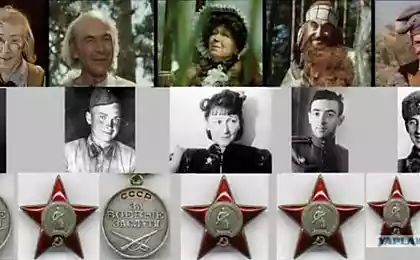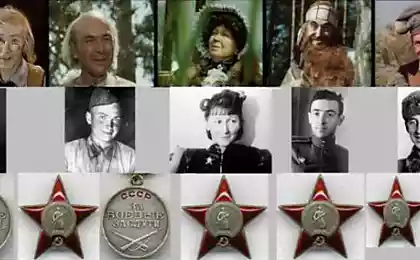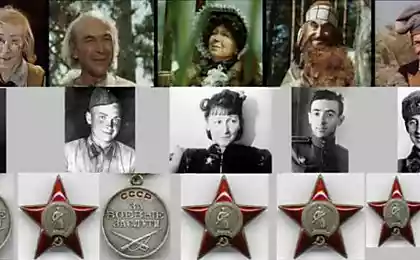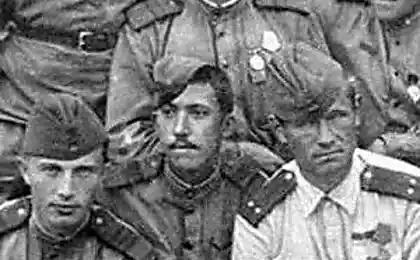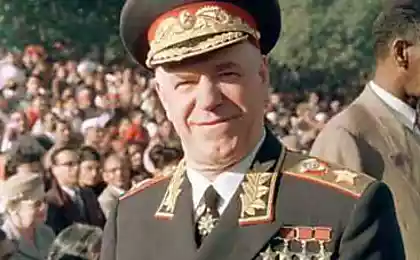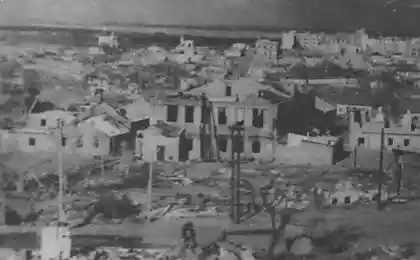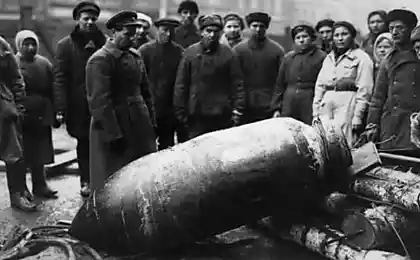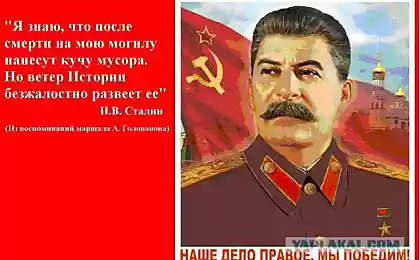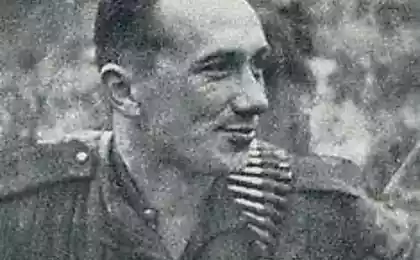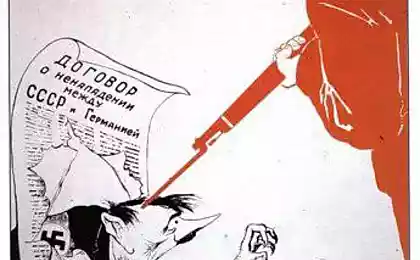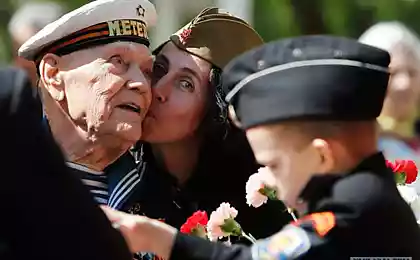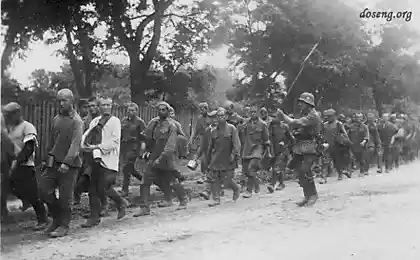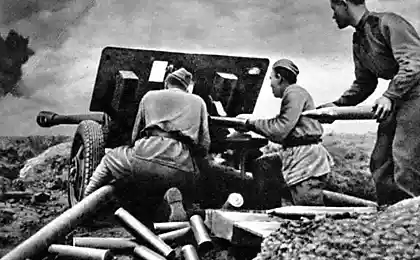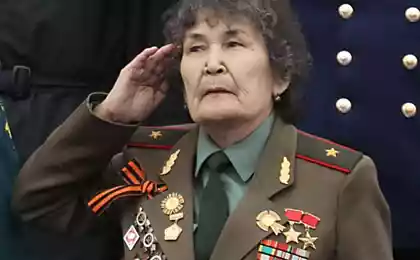1392
Myths about the Great Patriotic War
"Deceitful historians should be executed as counterfeiters»
M. Cervantes
This article provides an analysis of the major false myths about the Great Patriotic War of 1941-1945, as well as some war-related events that occurred prior to its beginning or after its completion.
The article discusses the myths and theories, specifically invented russophobes or resulting from illiterate reasoning people who do not know or are trying to denigrate the history of Russia and the USSR.
The article does not address people's myths about the war, which are not vilified, and only a few distort or exaggerate the events. Also in the article does not discuss conspiracy theories, hypotheses about the secret backroom games and other speculation and alternative interpretations of events, documents which are classified as "secret."
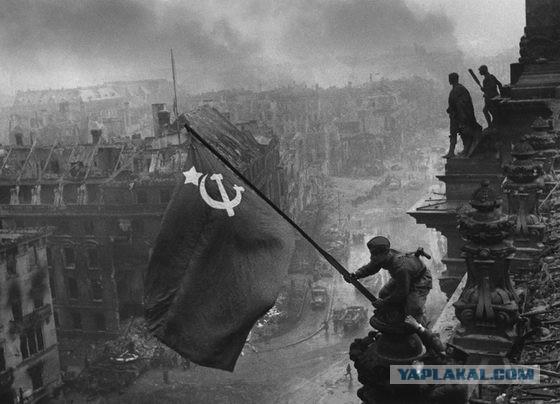
The myth of the Molotov-Ribbentrop Pact
One of the most common is proplachenny West myth of the so-called Molotov-Ribbentrop Pact, or more precisely, about the reasons for signing the treaty. Allegedly, if Stalin was so afraid of Hitler, he wanted to become his ally and to help in the war against Europe, and that as a result of the signing of the contract were disadvantageous for the USSR.
In fact, the signing of the pact was a political victory for the Soviet Union. Without any material or human losses the Soviet Union could:
- Postpone the start of the war, which gave time to prepare the army and strengthening defense;
- Destroy the plans of the Japanese strike on the Soviet Union the second front, which they did their best to achieve - the signing of the pact forced them to ask for a truce on Khalkhin-;
- To get into the sphere of their interests independent Baltic states, and then attach it while avoiding counter and West Germany;
- Attach the Western Ukraine and Western Belarus - entry into the Soviet Union the new western territories has significantly increased the way the German tanks to the key cities of the USSR (the average in the borders of the USSR moved away to the west of 600 km);
- To prevent the creation of a coalition in Germany and Europe against the Soviet Union, which subsequently led Hitler to fight on two fronts.
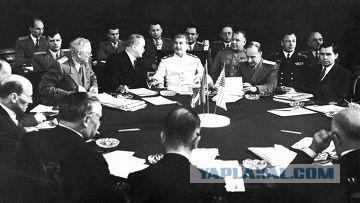
Myth: The Soviet Union attacked Poland weak, thereby supporting the Third Reich
USSR actually spent military campaign against Poland in September 1939, dividing its territory to Germany. But this event is interpreted by many completely wrong.
Plans for the German attack on Poland and the possible reactions of the USSR
After the war at the Nuremberg trials it was found that 11 April 1939, long before the signing of a nonaggression pact with the Soviet Union, Hitler approved the "White Plan" the attack on Poland, and on April 3 outlined his date - "no later than 01/09/1939 Thus, the initiative of the war and the beginning of the invasion of Poland did not belong to the Soviet Union and to implement a plan of attack, regardless of the intended position of the USSR.
Before the Soviet Union had a choice between complete non-interference, attempts to support Poland or taking part in her next section. Non-intervention was apparently the most unfavorable one - to give the whole of Poland over Germany would be closer to the Soviet industrial centers and excessive force hostile to the Communists and Russian 3rd Reich, which would continue to attack the Soviet Union in a coalition with other European countries. And the Soviet Union could not just give the Nazis the inhabitants of the Western Ukraine and Belarus.
The reluctance to cooperate with the USSR Poland
On the question, what prevented the Soviet Union supported Poland in the war with Germany, the answer is simple: Poland simply did not want to support the Soviet Union. Furthermore, less than a year before the Polish campaign of Poland itself was not averse to be on the side of Germany in the future war with the USSR.
From the conversation counselor of the German Embassy in Poland R. Shelii vice-director of the Political Department of the Ministry of Foreign Affairs of Poland M. Kobylyanskim:
"If the Carpathian Rus depart for Hungary, then Poland will agree later to side with Germany in the march on the Soviet Ukraine.»
From the conversation counselor of the German Embassy in Poland R. Shelii with Polish envoy in Iran J. Karsh-Sedlevskim of December 28, 1938 .:
"For Poland better before the conflict most definitely be on the side of Germany, as the territorial interests of Poland to the west and the political goals of Poland in the east, especially in Ukraine, can be provided only by advance made by the Polish-German agreement. He Karshi-Sedlevsky, subordinate its activities as the Polish envoy to Tehran to this great eastern concept, as necessary, in the end, convince and encourage also the Persians and Afghans play an active role in a future war against the Soviets. »
From the talk of the German Foreign Minister Ribbentrop, Minister of Foreign Affairs of Poland Yu Beck on January 26, 1939 .:
"Mr. Beck made no secret that Poland claims to Soviet Ukraine and the exit to the Black Sea.»
In 1938, Poland did not allow Soviet troops to come to the aid of Czechoslovakia, when the Hitler annexed. Moreover, for this, after the seizure of Czechoslovakia, Hitler allowed the annex part of the territory of Poland, Czechoslovakia (Cieszyn region).
Poland refused to accept Soviet aid even in August 1939, when a military clash between the 3rd Reich and Poland became virtually inevitable.
So, on August 19, the Polish army, Marshal Edward Rydz-Ridz said proudly:
"Regardless of the consequences, not one inch of Polish territory will never be allowed to take the Russian forces.»
Note that at the time the Molotov-Ribbentrop Pact has not yet been signed with the Soviet Union and Germany were enemies, but the option of Soviet aid Poland was not considered.
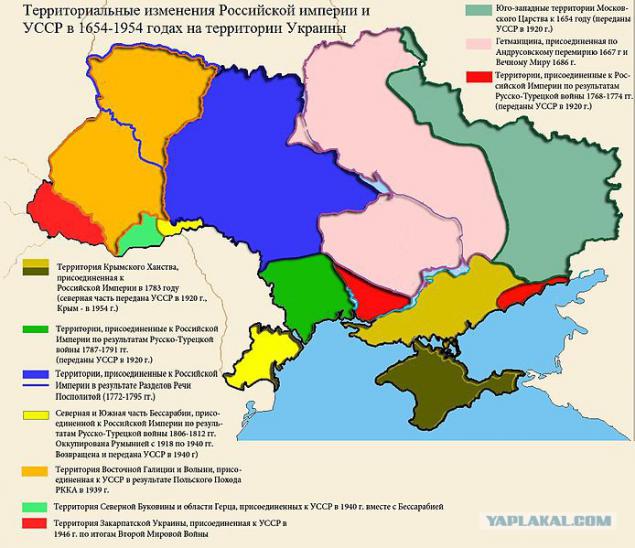
Myth: The Soviet Union started the Second World War
Adjustment "of Stalinism and Nazism»
Germany attacked Poland on Allied troops in France, occupied half of Europe, and only the Soviet Union, according to our liberals, he attacked Germany.
This myth has spread to the west and became the official version of history in many countries with institutionalized Russophobia, such as Poland, Latvia, Lithuania, Estonia. Currently, the EU is increasingly trying to equate Hitler and Stalin, between fascism and communism. In particular, for this purpose to rewrite the history of World War II, used, lies, juggling and concealment of facts - all in order to "equalize" the responsibility of the Soviet Union and Germany for starting the war, or even declare the Soviet Union the main culprit.
MEPs recently adopted a declaration on how to celebrate the day of "Remembrance of the Victims of Stalinism and Nazism," on August 23 when he was imprisoned "Molotov - Ribbentrop Pact." In 2011, on the official website of the US Embassy in Estonia posted a statement: "On this day ... Nazi Germany and the Soviet Union took steps to put Europe and the world to the brink of imminent war." In Poland, the Ministers of Justice of the European Union adopted the "Warsaw Declaration", which declared the USSR direct responsibility for the outbreak of the Second World War.
Silence Munich Agreement
Western historians as one forget that before the "Molotov - Ribbentrop Pact" was the "Munich Agreement" Germany, Italy, UK and France. September 29, 1938 represented the UK Chamberlain, France - Daladier, Nazi Germany - Adolf Hitler, fascist Italy - Benito Mussolini. The so-called civilized countries sanctioned Hitler's attack on Czechoslovakia.
Now Western propaganda diligently trying to erase the truth from the history books and to shift the blame on the Soviet Union. Few people remember the words of Churchill:
"England has been offered a choice between war and dishonor. She chose dishonor and get war ».
In those same years, the US ambassador to Spain K. Bowers said:
"..." Munich Peace "for one night svёl France to the status of second-rate powers miserable by depriving her friends, and of universal respect for, and England struck a devastating blow, which she received in the last 200 years. Half a century ago, for such a world would put Chamberlain Tower and Daladier would be executed on the guillotine ».
As a result of the betrayal of Western countries Hitler was Sudetkuyu region of Czechoslovakia with a highly developed industry. Czechoslovak factories "Skoda" for the Nazi army made a huge amount of military equipment, which dramatically increased the military power of Germany before the attack on Poland.
Perhaps the most loud screaming victims of Communism and Nazism, Poland itself with Hitler took part in the partition of Czechoslovakia. Along with the Nazi Army Polish troops entered the territory of Czechoslovakia and seized Cieszyn region.
The photo German soldiers break the barrier on the border with Poland in 1939
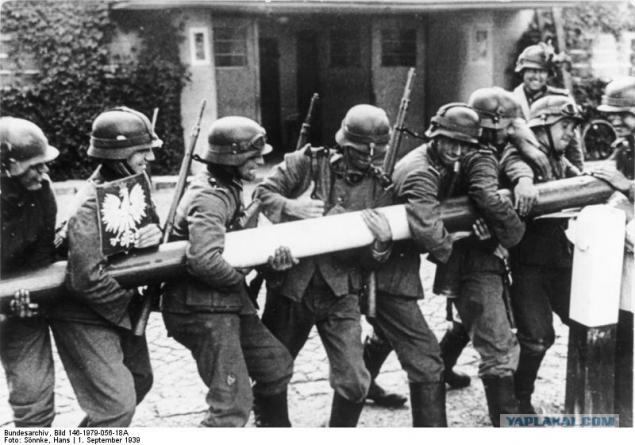
Myth: Stalin knew it would be the German attack, but did nothing
In fact, authoritative reports on the start of the war Germany was more than 80 messages about this ever came and called more and more choice. Since the beginning of the 41st year such intelligence came regularly, but the attack did not happen, and Germany by their appearance did not lead him to the active preparation. As a result, the Soviet military leadership concluded that the most likely invasion of the Soviet Union will not happen until Germany crush UK. Option that Hitler dare to wage war on two fronts, was considered suicidal for Germany and therefore unlikely (later the war on two fronts did lead the Third Reich to complete disaster).
The transition to the personnel system construction of the Soviet Army
Stalin's error was that he thought the past was correct reports about the attack on the USSR misinformation that spreads the UK with the intention of provoking the Soviet Union and the German take-kick away. But the fact that sooner or later the war will be, no one doubted.
Of course, in anticipation of a future war, the armed forces of the Soviet Union is in urgent need of modernization and increase in the number of personnel, and the Soviet leaders actively engaged in military buildup. According to the measures taken in the recruitment of personnel based on the size of the allowed to increase up to 2 million people.
Significantly increased equipment forces air defense systems, guns and mortars. [25] In the years 1938-40 began to actively updated armored forces, which came into service the newest tanks T-34 and KV, who became famous in later battles.
The situation is complicated by the fact that the movement of German troops to the Soviet border until the last moment is not critical and threatening. The redeployment of German forces in the eyes of the Soviet command could be explained by the plans of the Germans to cover themselves from the east during the landing of the British Isles. As a result, the time to complete the deployment of Soviet troops was lost.
Accordingly, Stalin made some changes and approved the military directive, which immediately made and brought to the Timoshenko and Zhukov:
Item 3. I order:
a) for a night on 6/22/41 was secretly occupy fortified firing points on the state border areas;
b) before the dawn of 06/22/41 dispersed airfields all aircraft, including a military carefully disguise it;
c) all of the lead in combat readiness. Keep troops dispersed and disguised;
d) result in air defense combat readiness without additional lifting of assigned staff. Prepare all the activities of towns and blackout facilities;
d) any other activities without a special order not to
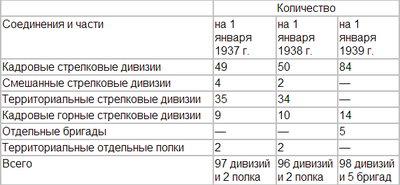
Myth: The Red Army was superior capabilities of the Wehrmacht at the beginning of the war
Army of the Soviet Union did in many respects superior to the Third Reich, but mostly it's superiority was reflected in the total number of personnel and amount of military equipment. In this regard, some historians have put forward the theory that the Red Army defeated the outbreak of war only because supposedly did not want and did not know how to fight. Stalin allegedly only destroys the army, the military shot and fanatically believed Hitler. In reality, the first defeat of the Red Army due to several serious reasons, which together have led to a profound retreat in 1941.
Firstly, the Wehrmacht had the advantage of surprise. The exact time of impact, the Soviet command until the last moment did not know. As a result, the order to bring the troops in readiness received only a few hours before the start of the German offensive. This led to an organizational unwillingness to reflect the most extensive in the history of the world military invasion.
Secondly, the Wehrmacht had a superior number of troops in the eastern direction (ie in the direction of the main attack): 190 German divisions against 170 Soviet. This strength of the divisions of the German Army in the Soviet exceed 1, 5 - 2 times, and a concentrated attack on several fronts has meant that the German superiority in manpower and equipment reached 3 to 5 times.
Third, despite the presence of a huge number of tanks and planes, the Soviet Army was experiencing a shortage of ammunition and fuel. This situation was observed in the course of Soviet tank counterattack near Dubno-Lutsk, Rivne inflicted to stop the German advance. Due to this collision approximately equal numbers of forces, Soviet troops were defeated and forced to retreat mainly because of lack of fuel and ammunition. The fact that the first brunt of the German artillery and aviation was directed just at a fuel depot and weapons in the border areas, resulting in the first days of the war they are almost completely destroyed. And quickly arrange delivery of ammunition and fuel for the huge cross-border grouping of the Soviet army was extremely difficult.
Fourth, neither the Red Army nor any other army in the world at that time had no experience of a successful fight against the German tactics of massive attack with armored spearheads and quickly advancing far ahead of motorized groups that are also complemented by a strong and well-coordinated air support. In 1940, the aggressive tactics and superior German tanks have allowed Hitler to carry out a blitzkrieg in France, which was conquered for any month. Recipe counter this tactic by 1941 has not yet been invented and tested. The situation is complicated by the fact that the Nazi invasion of June 22, 1941 was unprecedented in its scale. The necessary experience of the Red Army could not give any successful steppe battle with the Japanese on Khalkhin-or fights with Finns in the swamps and forests of the Karelian Isthmus (and conditions, and opponents, and the scale of the fighting there were completely different). In addition, the Red Army had only recently several times increased its number of experienced officer cadres was not enough, and a significant part of the officers and soldiers continued to focus on the experience of the First World and the Civil War, which took place before the beginning of the era of high-grade motors.
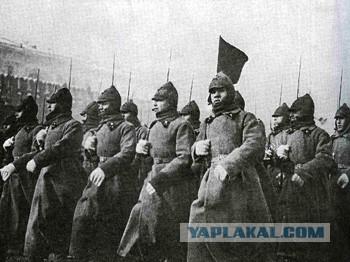
Myth: Hitler's victory is not the Soviet army, and thaw and frost
The myth that the Soviet Union won the war only with the help of strong frosts, slush and blizzards, is leading the list of myths about the war. Exactly the same myth about all-powerful Russian General Frost Europeans like to tell and about the invasion of Russia in 1812, which ended with the collapse of Napoleon's Grand Army.
If you understand the plans of the German command for an attack on the Soviet Union, it is clear that the victory over the main forces of the Soviet army, including the seizure of Moscow, had been occurred during the summer or, in extreme cases, the summer-autumn campaign. That is, Hitler was not originally planned to conduct active combat operations during cold weather.
Victory over the allied forces in France for 44 days and gave him inspired the confidence in the impending war in the East. But as a result of a powerful blow and taking the key cities of the USSR Red Army's defense did not break, and German units suffered losses, which have not yet happened. [In addition, despite the crushing defeat of the war, Soviet military leaders, headed by Marshal Zhukov managed to hold brilliant counterattack Yelnia, during which the German army for the first time the Second World War receded and passed to the defense. Up to five German divisions were destroyed, but the offensive on Moscow stopped for a long time.
It is worth noting that all these events took place in the summer and at the beginning of this oseni.Pri weather conditions in the summer of 1941, is known to have stood virtually ideal for the German offensive.
M. Cervantes
This article provides an analysis of the major false myths about the Great Patriotic War of 1941-1945, as well as some war-related events that occurred prior to its beginning or after its completion.
The article discusses the myths and theories, specifically invented russophobes or resulting from illiterate reasoning people who do not know or are trying to denigrate the history of Russia and the USSR.
The article does not address people's myths about the war, which are not vilified, and only a few distort or exaggerate the events. Also in the article does not discuss conspiracy theories, hypotheses about the secret backroom games and other speculation and alternative interpretations of events, documents which are classified as "secret."

The myth of the Molotov-Ribbentrop Pact
One of the most common is proplachenny West myth of the so-called Molotov-Ribbentrop Pact, or more precisely, about the reasons for signing the treaty. Allegedly, if Stalin was so afraid of Hitler, he wanted to become his ally and to help in the war against Europe, and that as a result of the signing of the contract were disadvantageous for the USSR.
In fact, the signing of the pact was a political victory for the Soviet Union. Without any material or human losses the Soviet Union could:
- Postpone the start of the war, which gave time to prepare the army and strengthening defense;
- Destroy the plans of the Japanese strike on the Soviet Union the second front, which they did their best to achieve - the signing of the pact forced them to ask for a truce on Khalkhin-;
- To get into the sphere of their interests independent Baltic states, and then attach it while avoiding counter and West Germany;
- Attach the Western Ukraine and Western Belarus - entry into the Soviet Union the new western territories has significantly increased the way the German tanks to the key cities of the USSR (the average in the borders of the USSR moved away to the west of 600 km);
- To prevent the creation of a coalition in Germany and Europe against the Soviet Union, which subsequently led Hitler to fight on two fronts.

Myth: The Soviet Union attacked Poland weak, thereby supporting the Third Reich
USSR actually spent military campaign against Poland in September 1939, dividing its territory to Germany. But this event is interpreted by many completely wrong.
Plans for the German attack on Poland and the possible reactions of the USSR
After the war at the Nuremberg trials it was found that 11 April 1939, long before the signing of a nonaggression pact with the Soviet Union, Hitler approved the "White Plan" the attack on Poland, and on April 3 outlined his date - "no later than 01/09/1939 Thus, the initiative of the war and the beginning of the invasion of Poland did not belong to the Soviet Union and to implement a plan of attack, regardless of the intended position of the USSR.
Before the Soviet Union had a choice between complete non-interference, attempts to support Poland or taking part in her next section. Non-intervention was apparently the most unfavorable one - to give the whole of Poland over Germany would be closer to the Soviet industrial centers and excessive force hostile to the Communists and Russian 3rd Reich, which would continue to attack the Soviet Union in a coalition with other European countries. And the Soviet Union could not just give the Nazis the inhabitants of the Western Ukraine and Belarus.
The reluctance to cooperate with the USSR Poland
On the question, what prevented the Soviet Union supported Poland in the war with Germany, the answer is simple: Poland simply did not want to support the Soviet Union. Furthermore, less than a year before the Polish campaign of Poland itself was not averse to be on the side of Germany in the future war with the USSR.
From the conversation counselor of the German Embassy in Poland R. Shelii vice-director of the Political Department of the Ministry of Foreign Affairs of Poland M. Kobylyanskim:
"If the Carpathian Rus depart for Hungary, then Poland will agree later to side with Germany in the march on the Soviet Ukraine.»
From the conversation counselor of the German Embassy in Poland R. Shelii with Polish envoy in Iran J. Karsh-Sedlevskim of December 28, 1938 .:
"For Poland better before the conflict most definitely be on the side of Germany, as the territorial interests of Poland to the west and the political goals of Poland in the east, especially in Ukraine, can be provided only by advance made by the Polish-German agreement. He Karshi-Sedlevsky, subordinate its activities as the Polish envoy to Tehran to this great eastern concept, as necessary, in the end, convince and encourage also the Persians and Afghans play an active role in a future war against the Soviets. »
From the talk of the German Foreign Minister Ribbentrop, Minister of Foreign Affairs of Poland Yu Beck on January 26, 1939 .:
"Mr. Beck made no secret that Poland claims to Soviet Ukraine and the exit to the Black Sea.»
In 1938, Poland did not allow Soviet troops to come to the aid of Czechoslovakia, when the Hitler annexed. Moreover, for this, after the seizure of Czechoslovakia, Hitler allowed the annex part of the territory of Poland, Czechoslovakia (Cieszyn region).
Poland refused to accept Soviet aid even in August 1939, when a military clash between the 3rd Reich and Poland became virtually inevitable.
So, on August 19, the Polish army, Marshal Edward Rydz-Ridz said proudly:
"Regardless of the consequences, not one inch of Polish territory will never be allowed to take the Russian forces.»
Note that at the time the Molotov-Ribbentrop Pact has not yet been signed with the Soviet Union and Germany were enemies, but the option of Soviet aid Poland was not considered.

Myth: The Soviet Union started the Second World War
Adjustment "of Stalinism and Nazism»
Germany attacked Poland on Allied troops in France, occupied half of Europe, and only the Soviet Union, according to our liberals, he attacked Germany.
This myth has spread to the west and became the official version of history in many countries with institutionalized Russophobia, such as Poland, Latvia, Lithuania, Estonia. Currently, the EU is increasingly trying to equate Hitler and Stalin, between fascism and communism. In particular, for this purpose to rewrite the history of World War II, used, lies, juggling and concealment of facts - all in order to "equalize" the responsibility of the Soviet Union and Germany for starting the war, or even declare the Soviet Union the main culprit.
MEPs recently adopted a declaration on how to celebrate the day of "Remembrance of the Victims of Stalinism and Nazism," on August 23 when he was imprisoned "Molotov - Ribbentrop Pact." In 2011, on the official website of the US Embassy in Estonia posted a statement: "On this day ... Nazi Germany and the Soviet Union took steps to put Europe and the world to the brink of imminent war." In Poland, the Ministers of Justice of the European Union adopted the "Warsaw Declaration", which declared the USSR direct responsibility for the outbreak of the Second World War.
Silence Munich Agreement
Western historians as one forget that before the "Molotov - Ribbentrop Pact" was the "Munich Agreement" Germany, Italy, UK and France. September 29, 1938 represented the UK Chamberlain, France - Daladier, Nazi Germany - Adolf Hitler, fascist Italy - Benito Mussolini. The so-called civilized countries sanctioned Hitler's attack on Czechoslovakia.
Now Western propaganda diligently trying to erase the truth from the history books and to shift the blame on the Soviet Union. Few people remember the words of Churchill:
"England has been offered a choice between war and dishonor. She chose dishonor and get war ».
In those same years, the US ambassador to Spain K. Bowers said:
"..." Munich Peace "for one night svёl France to the status of second-rate powers miserable by depriving her friends, and of universal respect for, and England struck a devastating blow, which she received in the last 200 years. Half a century ago, for such a world would put Chamberlain Tower and Daladier would be executed on the guillotine ».
As a result of the betrayal of Western countries Hitler was Sudetkuyu region of Czechoslovakia with a highly developed industry. Czechoslovak factories "Skoda" for the Nazi army made a huge amount of military equipment, which dramatically increased the military power of Germany before the attack on Poland.
Perhaps the most loud screaming victims of Communism and Nazism, Poland itself with Hitler took part in the partition of Czechoslovakia. Along with the Nazi Army Polish troops entered the territory of Czechoslovakia and seized Cieszyn region.
The photo German soldiers break the barrier on the border with Poland in 1939

Myth: Stalin knew it would be the German attack, but did nothing
In fact, authoritative reports on the start of the war Germany was more than 80 messages about this ever came and called more and more choice. Since the beginning of the 41st year such intelligence came regularly, but the attack did not happen, and Germany by their appearance did not lead him to the active preparation. As a result, the Soviet military leadership concluded that the most likely invasion of the Soviet Union will not happen until Germany crush UK. Option that Hitler dare to wage war on two fronts, was considered suicidal for Germany and therefore unlikely (later the war on two fronts did lead the Third Reich to complete disaster).
The transition to the personnel system construction of the Soviet Army
Stalin's error was that he thought the past was correct reports about the attack on the USSR misinformation that spreads the UK with the intention of provoking the Soviet Union and the German take-kick away. But the fact that sooner or later the war will be, no one doubted.
Of course, in anticipation of a future war, the armed forces of the Soviet Union is in urgent need of modernization and increase in the number of personnel, and the Soviet leaders actively engaged in military buildup. According to the measures taken in the recruitment of personnel based on the size of the allowed to increase up to 2 million people.
Significantly increased equipment forces air defense systems, guns and mortars. [25] In the years 1938-40 began to actively updated armored forces, which came into service the newest tanks T-34 and KV, who became famous in later battles.
The situation is complicated by the fact that the movement of German troops to the Soviet border until the last moment is not critical and threatening. The redeployment of German forces in the eyes of the Soviet command could be explained by the plans of the Germans to cover themselves from the east during the landing of the British Isles. As a result, the time to complete the deployment of Soviet troops was lost.
Accordingly, Stalin made some changes and approved the military directive, which immediately made and brought to the Timoshenko and Zhukov:
Item 3. I order:
a) for a night on 6/22/41 was secretly occupy fortified firing points on the state border areas;
b) before the dawn of 06/22/41 dispersed airfields all aircraft, including a military carefully disguise it;
c) all of the lead in combat readiness. Keep troops dispersed and disguised;
d) result in air defense combat readiness without additional lifting of assigned staff. Prepare all the activities of towns and blackout facilities;
d) any other activities without a special order not to

Myth: The Red Army was superior capabilities of the Wehrmacht at the beginning of the war
Army of the Soviet Union did in many respects superior to the Third Reich, but mostly it's superiority was reflected in the total number of personnel and amount of military equipment. In this regard, some historians have put forward the theory that the Red Army defeated the outbreak of war only because supposedly did not want and did not know how to fight. Stalin allegedly only destroys the army, the military shot and fanatically believed Hitler. In reality, the first defeat of the Red Army due to several serious reasons, which together have led to a profound retreat in 1941.
Firstly, the Wehrmacht had the advantage of surprise. The exact time of impact, the Soviet command until the last moment did not know. As a result, the order to bring the troops in readiness received only a few hours before the start of the German offensive. This led to an organizational unwillingness to reflect the most extensive in the history of the world military invasion.
Secondly, the Wehrmacht had a superior number of troops in the eastern direction (ie in the direction of the main attack): 190 German divisions against 170 Soviet. This strength of the divisions of the German Army in the Soviet exceed 1, 5 - 2 times, and a concentrated attack on several fronts has meant that the German superiority in manpower and equipment reached 3 to 5 times.
Third, despite the presence of a huge number of tanks and planes, the Soviet Army was experiencing a shortage of ammunition and fuel. This situation was observed in the course of Soviet tank counterattack near Dubno-Lutsk, Rivne inflicted to stop the German advance. Due to this collision approximately equal numbers of forces, Soviet troops were defeated and forced to retreat mainly because of lack of fuel and ammunition. The fact that the first brunt of the German artillery and aviation was directed just at a fuel depot and weapons in the border areas, resulting in the first days of the war they are almost completely destroyed. And quickly arrange delivery of ammunition and fuel for the huge cross-border grouping of the Soviet army was extremely difficult.
Fourth, neither the Red Army nor any other army in the world at that time had no experience of a successful fight against the German tactics of massive attack with armored spearheads and quickly advancing far ahead of motorized groups that are also complemented by a strong and well-coordinated air support. In 1940, the aggressive tactics and superior German tanks have allowed Hitler to carry out a blitzkrieg in France, which was conquered for any month. Recipe counter this tactic by 1941 has not yet been invented and tested. The situation is complicated by the fact that the Nazi invasion of June 22, 1941 was unprecedented in its scale. The necessary experience of the Red Army could not give any successful steppe battle with the Japanese on Khalkhin-or fights with Finns in the swamps and forests of the Karelian Isthmus (and conditions, and opponents, and the scale of the fighting there were completely different). In addition, the Red Army had only recently several times increased its number of experienced officer cadres was not enough, and a significant part of the officers and soldiers continued to focus on the experience of the First World and the Civil War, which took place before the beginning of the era of high-grade motors.

Myth: Hitler's victory is not the Soviet army, and thaw and frost
The myth that the Soviet Union won the war only with the help of strong frosts, slush and blizzards, is leading the list of myths about the war. Exactly the same myth about all-powerful Russian General Frost Europeans like to tell and about the invasion of Russia in 1812, which ended with the collapse of Napoleon's Grand Army.
If you understand the plans of the German command for an attack on the Soviet Union, it is clear that the victory over the main forces of the Soviet army, including the seizure of Moscow, had been occurred during the summer or, in extreme cases, the summer-autumn campaign. That is, Hitler was not originally planned to conduct active combat operations during cold weather.
Victory over the allied forces in France for 44 days and gave him inspired the confidence in the impending war in the East. But as a result of a powerful blow and taking the key cities of the USSR Red Army's defense did not break, and German units suffered losses, which have not yet happened. [In addition, despite the crushing defeat of the war, Soviet military leaders, headed by Marshal Zhukov managed to hold brilliant counterattack Yelnia, during which the German army for the first time the Second World War receded and passed to the defense. Up to five German divisions were destroyed, but the offensive on Moscow stopped for a long time.
It is worth noting that all these events took place in the summer and at the beginning of this oseni.Pri weather conditions in the summer of 1941, is known to have stood virtually ideal for the German offensive.
